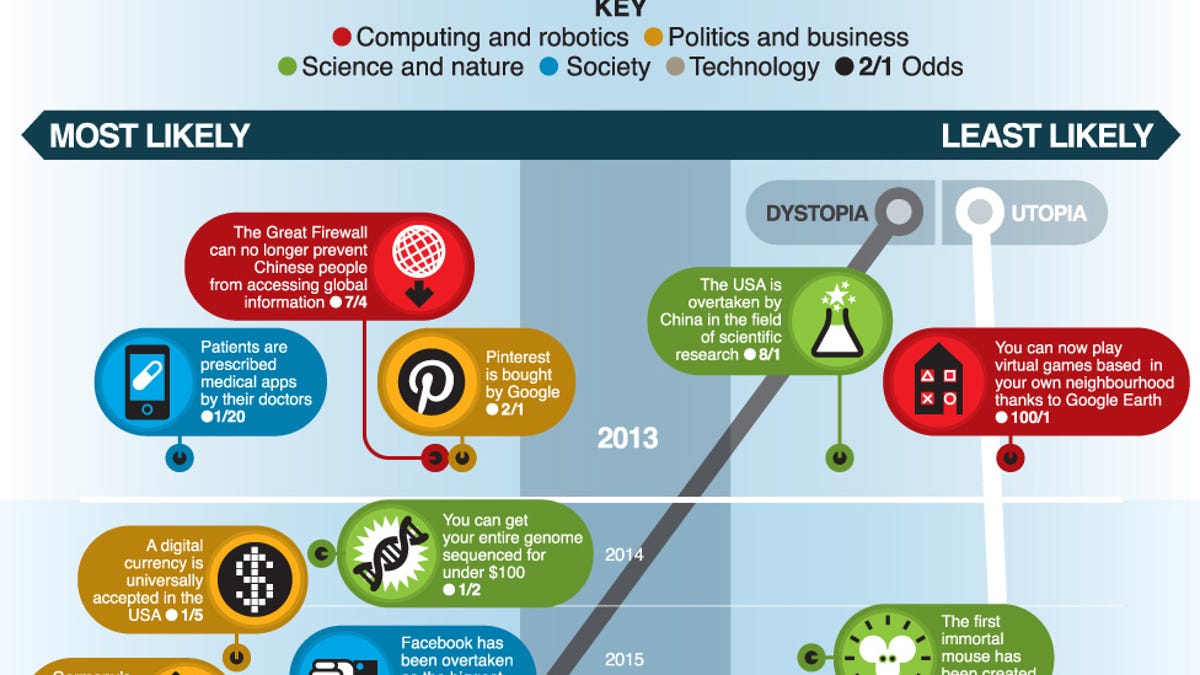Peer 150 years into the future of tech and science
A lot can change in a year, but how much can change in a century and a half? A BBC Future infographic theorizes on a few logical advancements that could come about as civilization marches toward the year 2150.
No matter how much you keep up with technology, it's challenging to predict its impact past a few years down the road. There are so many possibilities on the horizon -- especially considering the non-stop advancements in connectivity, nanotechnology, and other expanding fields of next-gen science -- that future generations may think of the early 2000s in the same way we think of the early 1900s: as a time when society stood on the cusp of incredible change.
A new BBC Future infographic takes a shot at what could happen in the realm of science, technology, and society as a whole from now to 2150. The predictions, which come from a cavalcade of sources (IBM, MIT, NASA, news outlets, and many others), indicate that the world we know today could be largely different in just a decade.
For example, in just the year 2013, the BBC predicts that the Chinese may finally find a way to overcome "The Great Firewall" (that currently limits access to certain Web sites) and that Google could buy Pinterest. Looking ahead, the next several years could present a digital currency universally accepted in the U.S.; genome sequencing for less than a $100; a social network overtaking Facebook in popularity; and farmers widely using robots for agricultural purposes.
Beyond the next 10 years, the guesses become even more extreme, but not entirely illogical. High-resolution bionic eye implants could expand our vision by 2019; robot pilots could fly commercial airplanes around 2030; and all cars could become automated and driverless by 2037. Of course, the infographic provides many other ideas, but we'll leave the rest for your scrolling pleasure.
What suggested advancement(s) do you look forward to the most? Sound off in the comments with a few of your own predictions.


